I need prove that the optimal page replacement algorithm is indeed optimal, and I'm not sure exactly how to start. I thought maybe proof by contradiction, but once I formulated an alternative claim, I wasn't sure how to show that it would have equal or less page faults than OPT.
2 Answers
Is this for CSE 330 final tomorrow?
- 17
- 5
-
Ha. Yes. I think I've worked it out though. I think it deals with some of the last pages to be replaced. At least one page will either be replaced that will never be needed again (as in OPT), or a page that will be needed will be swapped out, and therefore swapped in again (or no page swaps are needed). Therefore, any alternative page replacement algorithm must have at least as many page swaps as OPT. Let me know what you think of that, and goodluck tomorrow – Elijah Madden Dec 05 '17 at 03:29
Longest Forward Distance (LFD)
- Replace the page whose next request is farthest (in the future)
Theorem:
- LFD (longest forward distance) is an optimal alg.
Proof:
- For contradiction, assume that LFD is not optimal
- Then there exists a finite input sequence α on which LFD is not optimal (assume that the length of α is | α| = n)
- Let OPT be an optimal solution for α such that
– OPT processes requests 1,2, …, i in the same way as LFD
– OPT processes request i+1 differently than LFD
– Any other optimal strategy processes one of the first i+1 requests differently than LDF
• Hence, OPT is the optimal solution that behaves in the same way as LFD for as long as possible --> we have i < n
• Goal: Construct OPT′ that is identical with LFD for req. 1, … , i+1
Case 1: Request i+1 does not lead to a page fault
• LFD does not change the content of the fast memory
• OPT behaves differently than LFD --> OPT replaces some page in the fast memory
– As up to request i+1, both algorithms behave in the same way, they also have the same fast memory content
– OPT therefore does not require the new page for request i+1
– Hence, OPT can also load that page later (without extra cost) --> OPT′
Case 2: Request i+1 does lead to a page fault
• LFD and OPT move the same page into the fast memory, but they evict different pages
– If OPT loads more than one page, all pages that are not required for request i+1 can also be loaded later
• Say, LFD evicts page p and OPT evicts page p’
• By the definition of LFD, p’ is required again before page p
Now, there are 2 cases:-
a) OPT keeps p in fast memory until request ℓ
– OPT could evict p at request i+1, keeping p′ instead and load p (instead of p′) back into the fast memory at request ℓ, at no extra cost, similar to LFD
b) OPT evicts p at request ℓ’ < ℓ
– OPT could evict p at request i+1, keeping p′ instead and load p while evicting p′ at request ℓ’ (switch evictions of p and p′),again, similar to LFD
ergo, OPT is not a better solution than LFD.
ie, LFD is the Optimum Page replacement Technique.
LFD is also called as Optimum Page replacement Technique(OPT).
PS: in the proof, a name 'OPT' is used just as a 'name', not be confused it as Optimum Page replacement Technique.
